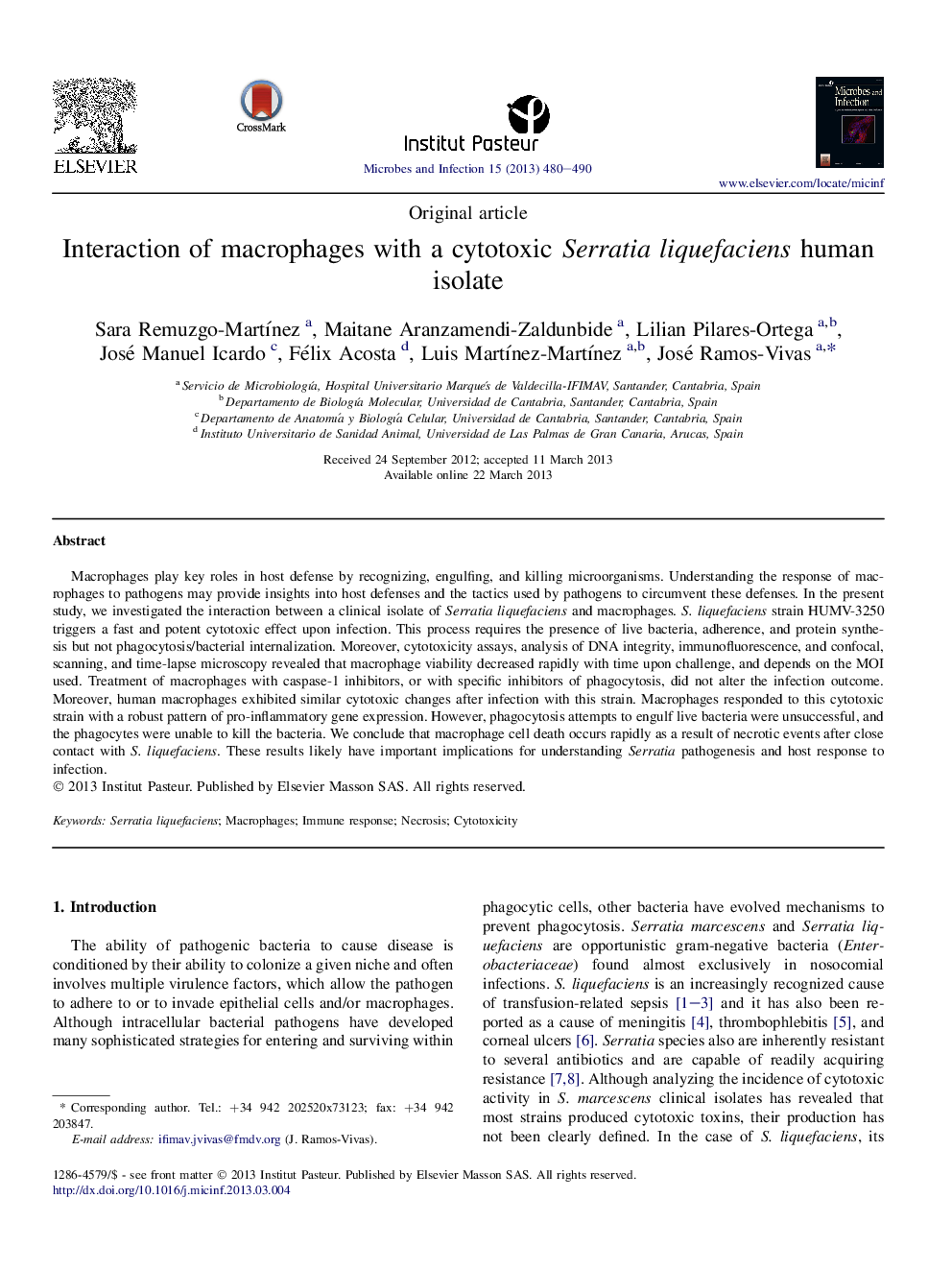| Article ID | Journal | Published Year | Pages | File Type |
|---|---|---|---|---|
| 6135690 | Microbes and Infection | 2013 | 11 Pages |
Abstract
Macrophages play key roles in host defense by recognizing, engulfing, and killing microorganisms. Understanding the response of macrophages to pathogens may provide insights into host defenses and the tactics used by pathogens to circumvent these defenses. In the present study, we investigated the interaction between a clinical isolate of Serratia liquefaciens and macrophages. S. liquefaciens strain HUMV-3250 triggers a fast and potent cytotoxic effect upon infection. This process requires the presence of live bacteria, adherence, and protein synthesis but not phagocytosis/bacterial internalization. Moreover, cytotoxicity assays, analysis of DNA integrity, immunofluorescence, and confocal, scanning, and time-lapse microscopy revealed that macrophage viability decreased rapidly with time upon challenge, and depends on the MOI used. Treatment of macrophages with caspase-1 inhibitors, or with specific inhibitors of phagocytosis, did not alter the infection outcome. Moreover, human macrophages exhibited similar cytotoxic changes after infection with this strain. Macrophages responded to this cytotoxic strain with a robust pattern of pro-inflammatory gene expression. However, phagocytosis attempts to engulf live bacteria were unsuccessful, and the phagocytes were unable to kill the bacteria. We conclude that macrophage cell death occurs rapidly as a result of necrotic events after close contact with S. liquefaciens. These results likely have important implications for understanding Serratia pathogenesis and host response to infection.
Related Topics
Life Sciences
Immunology and Microbiology
Immunology
Authors
Sara Remuzgo-MartÃnez, Maitane Aranzamendi-Zaldunbide, Lilian Pilares-Ortega, José Manuel Icardo, Félix Acosta, Luis MartÃnez-MartÃnez, José Ramos-Vivas,
